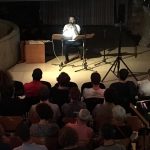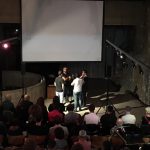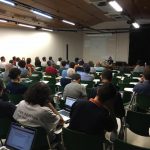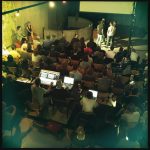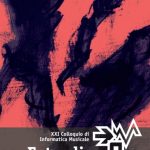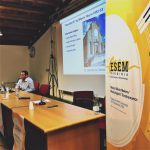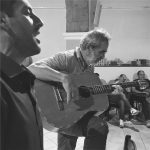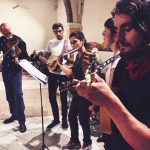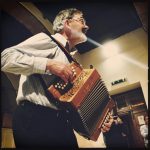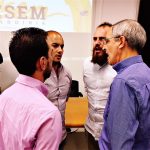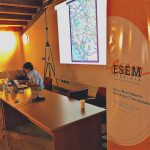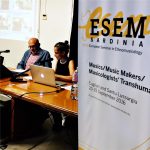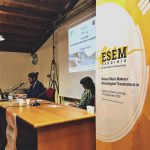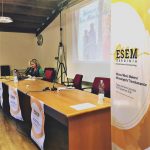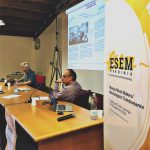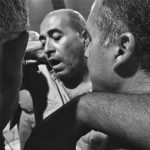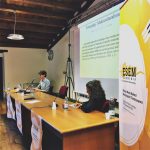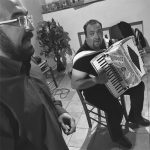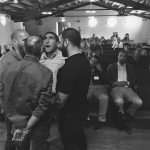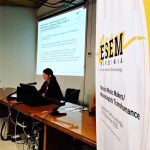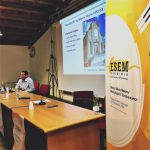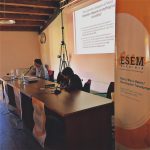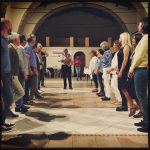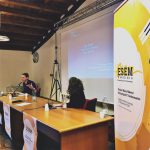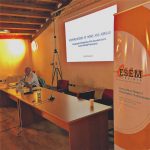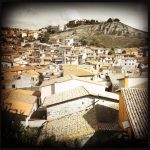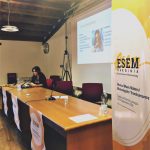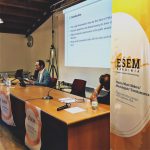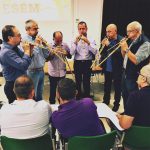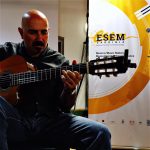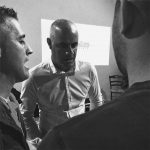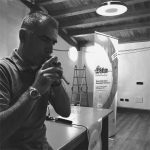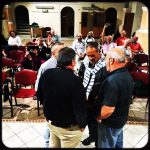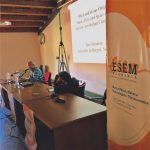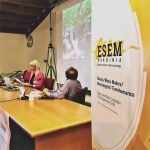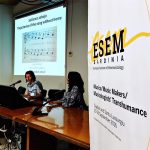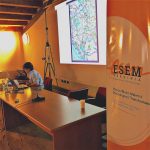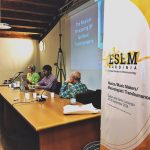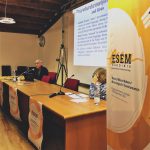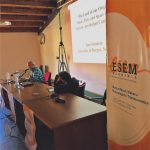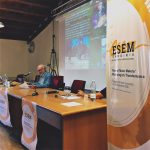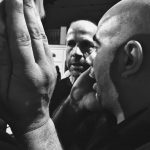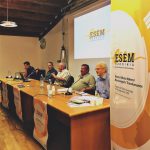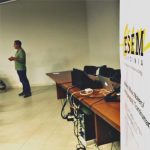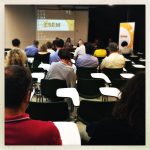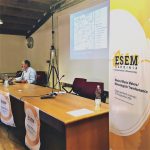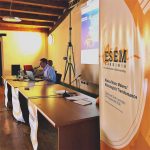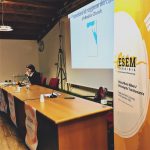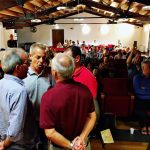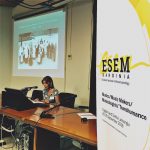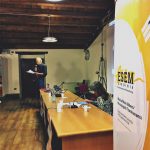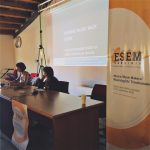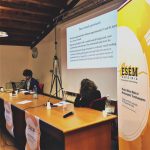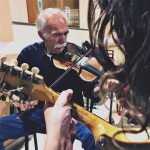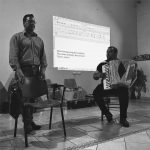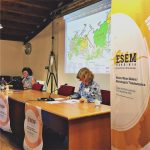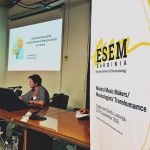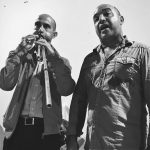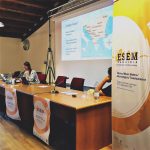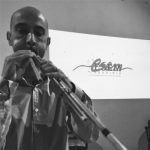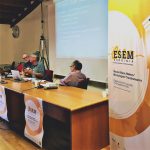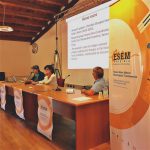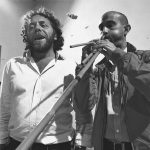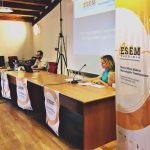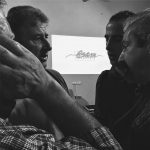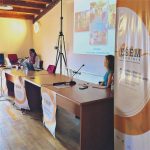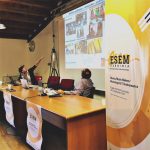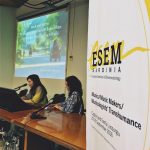Cagliari and Santu Lussurgiu, 20-25 September 2016
Musics/Music Makers/Musicologists’ Transhumance
The 32nd European Seminar in Ethnomusicology (ESEM) will take place from Tuesday 20 September to Sunday 25 September 2016, in Cagliari and Santu Lussurgiu (Sardinia) hosted by the Department of History, Cultural and Territorial Heritage of the University of Cagliari and by the Community of Santu Lussurgiu.
This year’s theme is inspired by an element of sheep-farming culture of the hosting island: transhumance. Although today it is less practiced than in the past (due to the recent changes of in pastoralism), in Sardinia transhumance has still a crucial relevance for the lives of many people. Every year, following the course of the seasons, men and flocks run through tread long established paths, from the mountains to the plains and then back from the plains to the mountains.
The concept of transhumance also has a strong symbolic significance in the Island of Sardinia’s traditional culture. It means leaving and returning. It cyclically entails human experiences both for travelling shepherds and for the communities of departure and arrival. It involves meeting with other people that determines mutual enrichments, through dialogue and (inter)action, through the circulation of knowledge, experiences, thoughts, and awareness, through taking over and drawing back, borrowing and ownership, etc.
We believe that this special idea of periodic people leaving and returning along known paths may be stimulating for our works. In particular, authors are invited to address their papers to the following topics:
- Musics back home. Musics have always travelled along unpredictable paths in unforeseeable ways. Indeed, until quite recently and prior to the invention of the phonograph, musics were the men and women who travelled and anything but de-personalized experiences. Music makers of all kinds (i.e., merchants, soldiers, pilgrims, seasonal workers, migrants, but also musicians, storytellers, buskers, specialists in the performing arts, and so on) went and came back, spreading something of their own music knowledge and bringing home something musically new. Recordings have dramatically changed everything: immaterial musics travel around the world via the media, often going on a quick round-trip, losing and acquiring something on the way.
- Musicologists back home According to Bernard Lortat-Jacob, the ethnomusicologist is not someone who goes out into the field, but rather, someone who goes back to it. Our work includes a continuous leaving and returning from home to the field and back again, which implies peculiar experiential situations. Moreover, also when “our field” is not so far away (as in the so-called “ethnomusicology at home”), our idea of a musical journey embodies a shift to other conceptualizations of music (and of the surrounding world). Inevitably, this coming and going involves a mutual enrichment for ourselves and our interlocutors, beyond the results of our music analysis and interpretations.
- Seasonal music paths. The passing of the seasons suggests the idea of a “cyclical time” during which things double back. But – as we know – that is not really how things work, since, ultimately, we are dealing with only apparent repetitions. Of course, this is noticeable about music performances, which cannot be faithfully repeated. However, seasonal musics or cyclical events that involve music acquire a special significance due to their cadenced flowing in time. This sort of leaving and returning, which is implicit in the cadenced recurring of seasonal music-making, concerns a special dimension of travelling, namely, the one of time travel.
- Transhumance of musical genres. Musical practice often implies a transmigration of genres and repertories. What is performed in one context is taken up and used in other settings with the transformation of performing practices, musical instruments, functions, and, occasionally, after undergoing further changes, it may even return to the original context. This has been the fate of several music repertories in these contemporary times of migration, globalization and the pervasive presence of popular music in fast changing societies.
Apart from the previous suggestions, the committee will also consider including a restricted number of free papers in order to allow the dissemination of important recent research, analysis and interpretations of specific music practices.
Proposals for individual papers (20 minutes + 10-minute discussion), or panels (90-minute presentations including discussion) are welcome. Due to the limited number of papers that can be accepted (willing to avoid parallel sessions), the programme committee welcomes presentation of research in the form of both poster and power-point-loop (where a limited number of slides is automatically repeated – only .ppt format) which will be accessible throughout the entire conference in suitable media stations. Furthermore, a special session of the Seminar will be devoted to this form of presentation in which each panellist will have 10 minutes for his/her presentation.
Proposals including a 300-word abstract, your full name and contact details to: Macchiarella@unica.it or i.macchiarella@gmail.com
The deadline for submission of abstracts is 28 February 2016.
A draft program will be announced in April 2016.
Programme committee
Ignazio Macchiarella (Chair) (Macchiarella@unica.it)
Ardian Ahmedaja, (Ahmedaja@mdw.ac.at)
Giovanni Giuriati (Giovanni.giuriati@uniroma1.it)
Ursula Hemetek, (Hemetek@mdw.ac.at)
Marco Lutzu (Mlutzu@livestudio.it)

